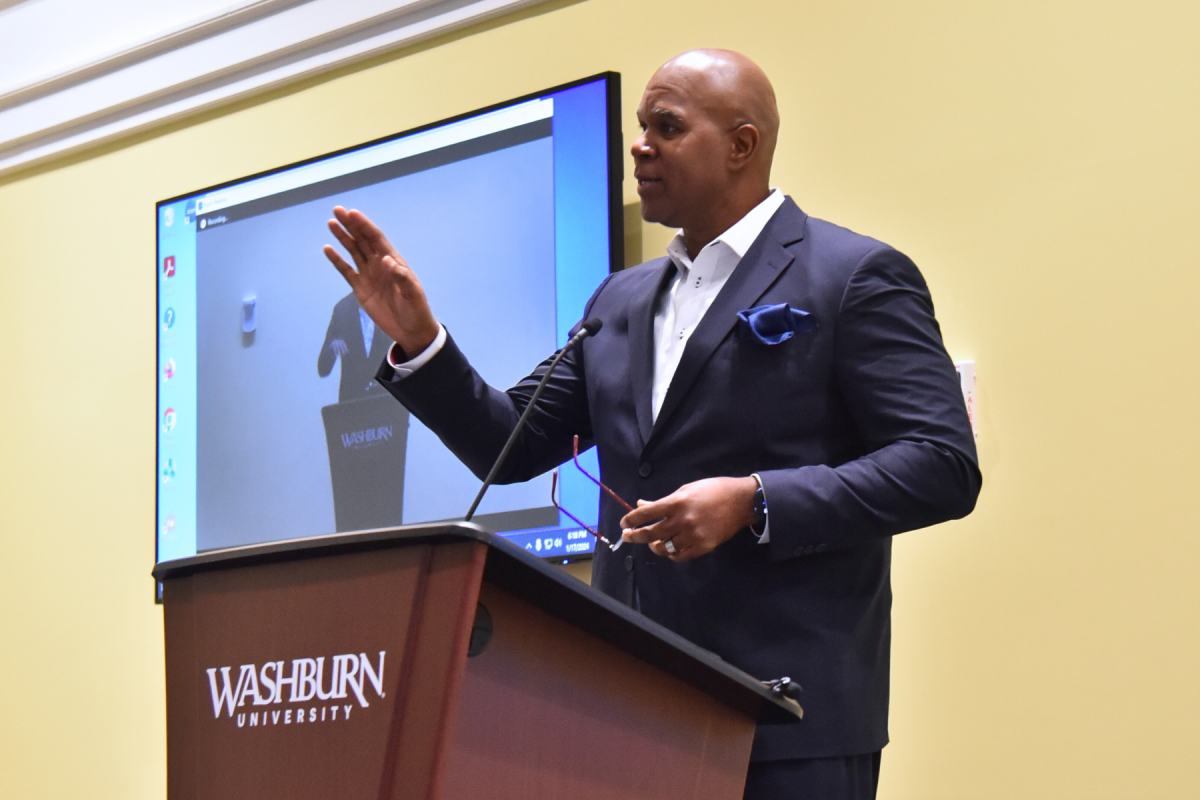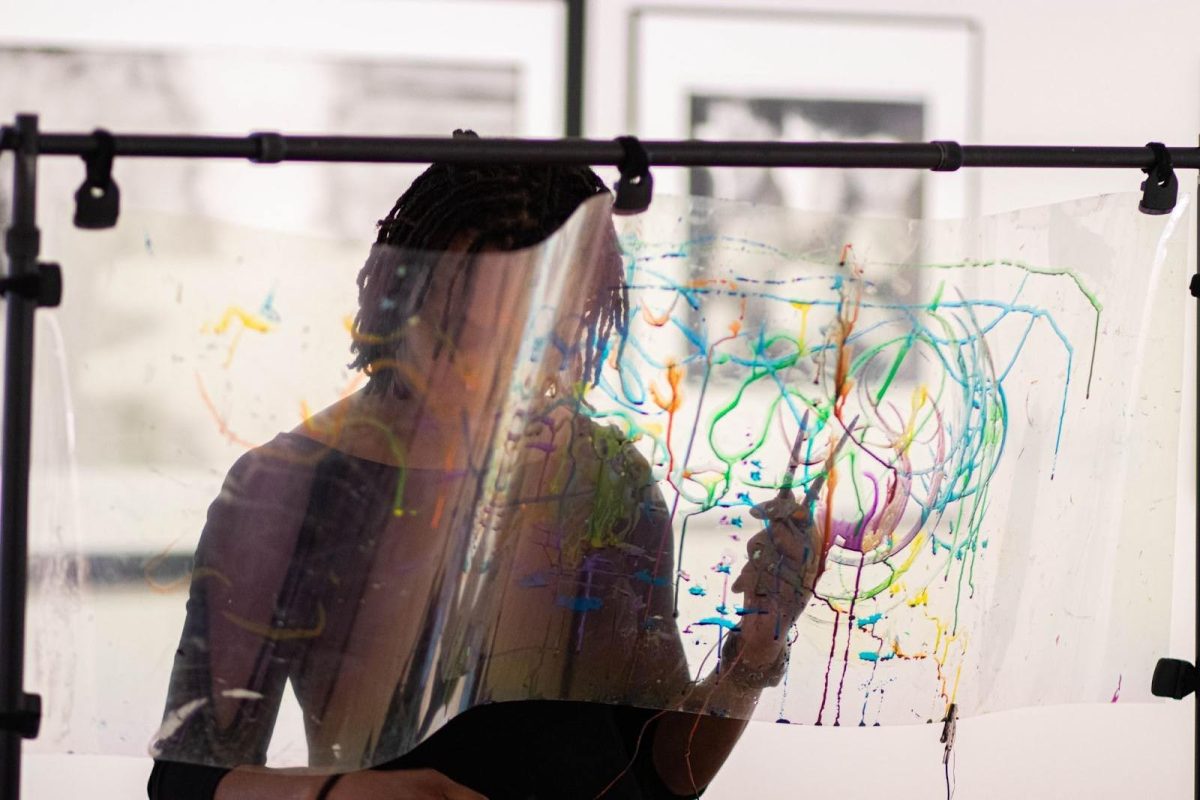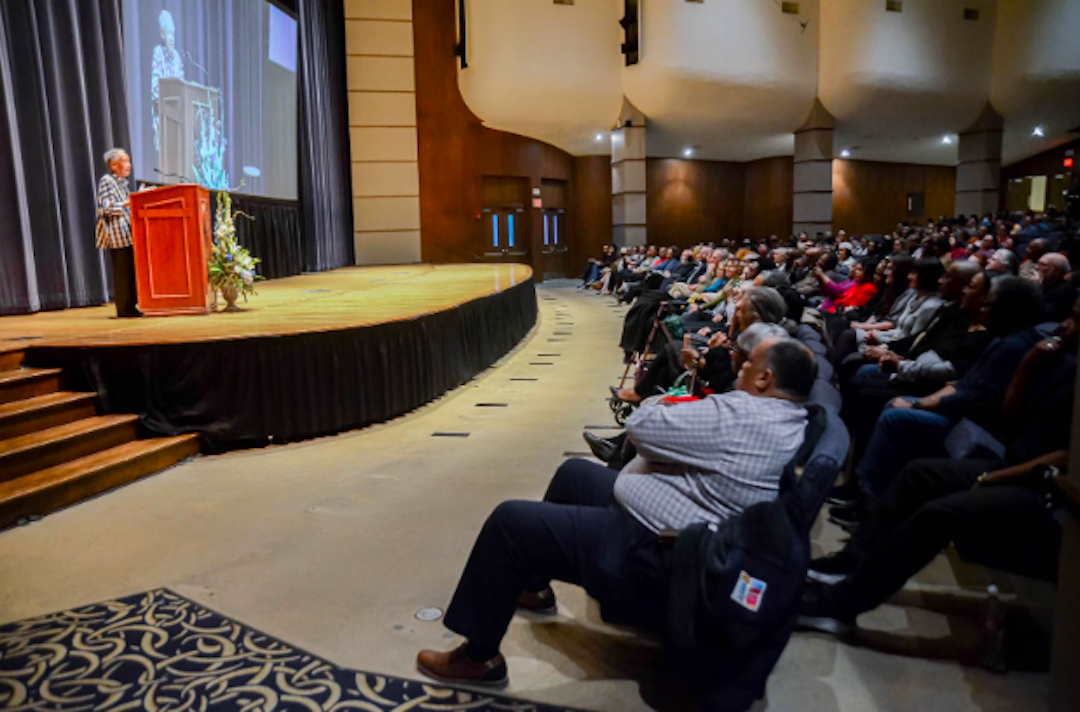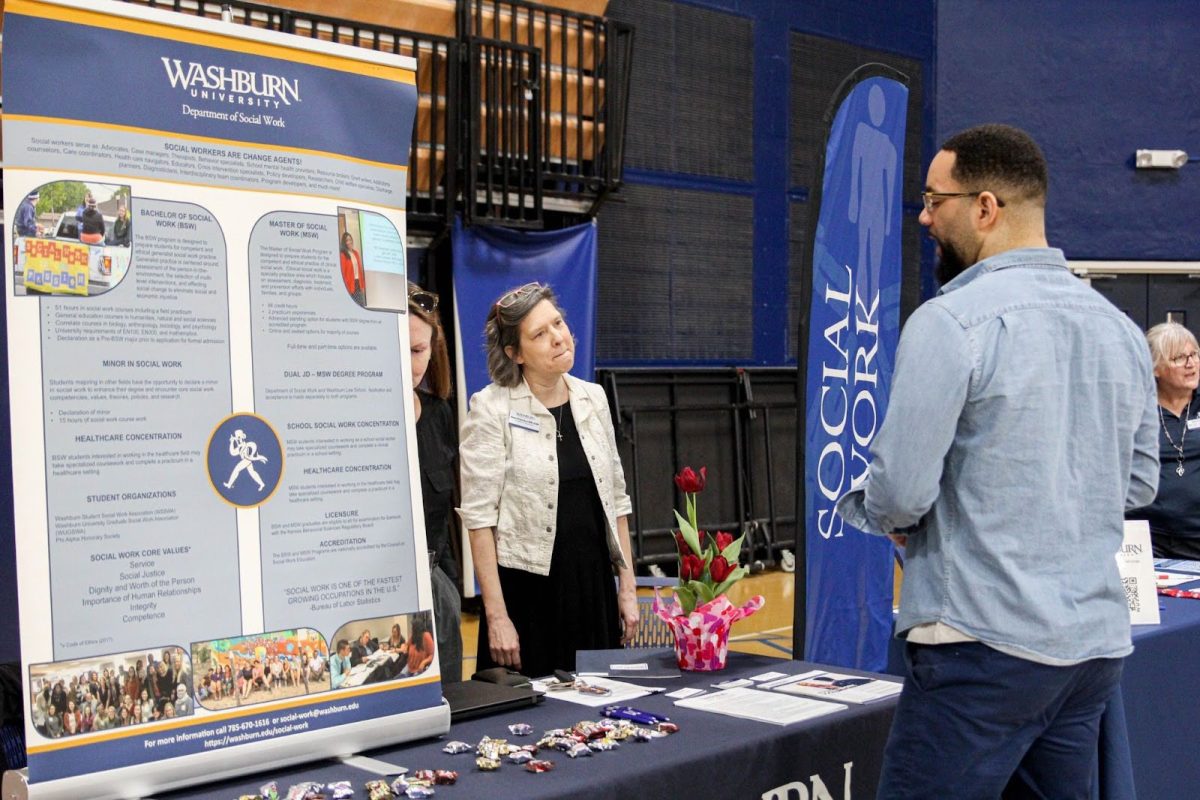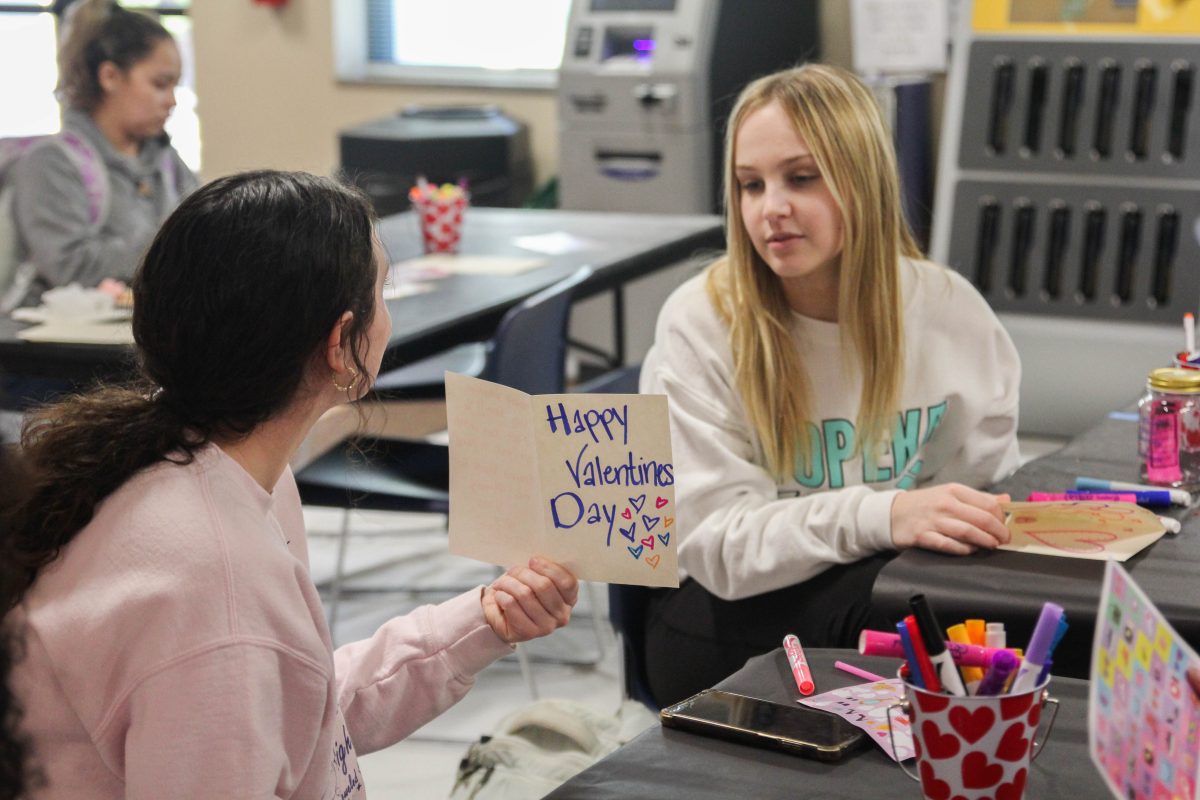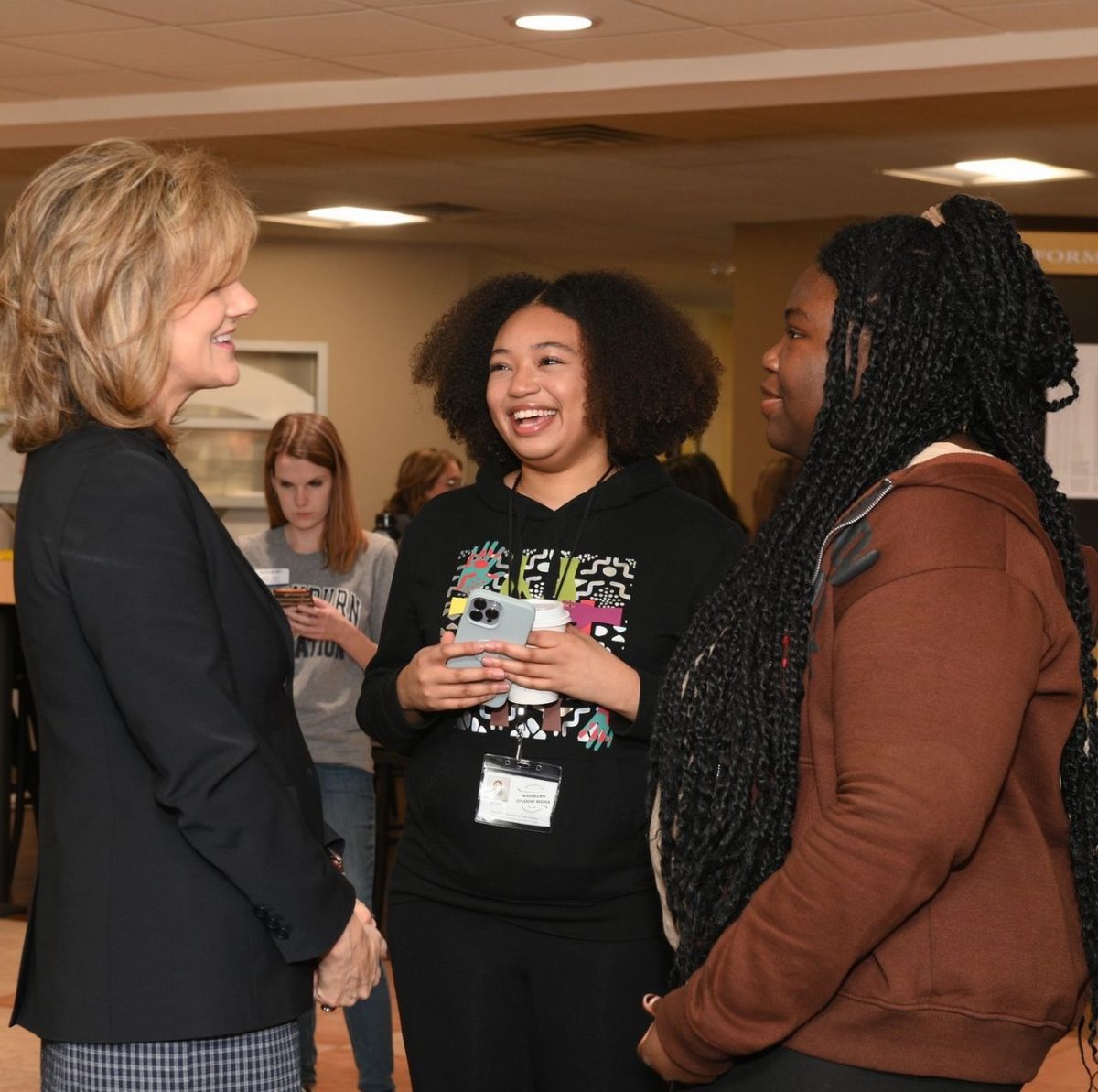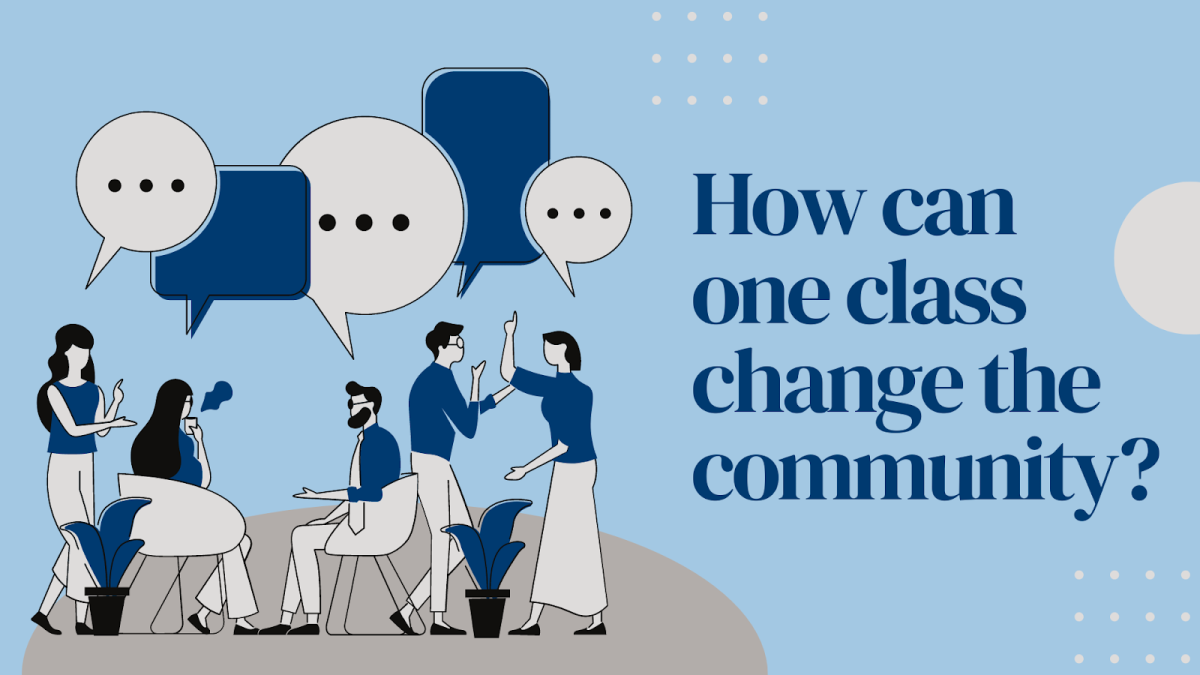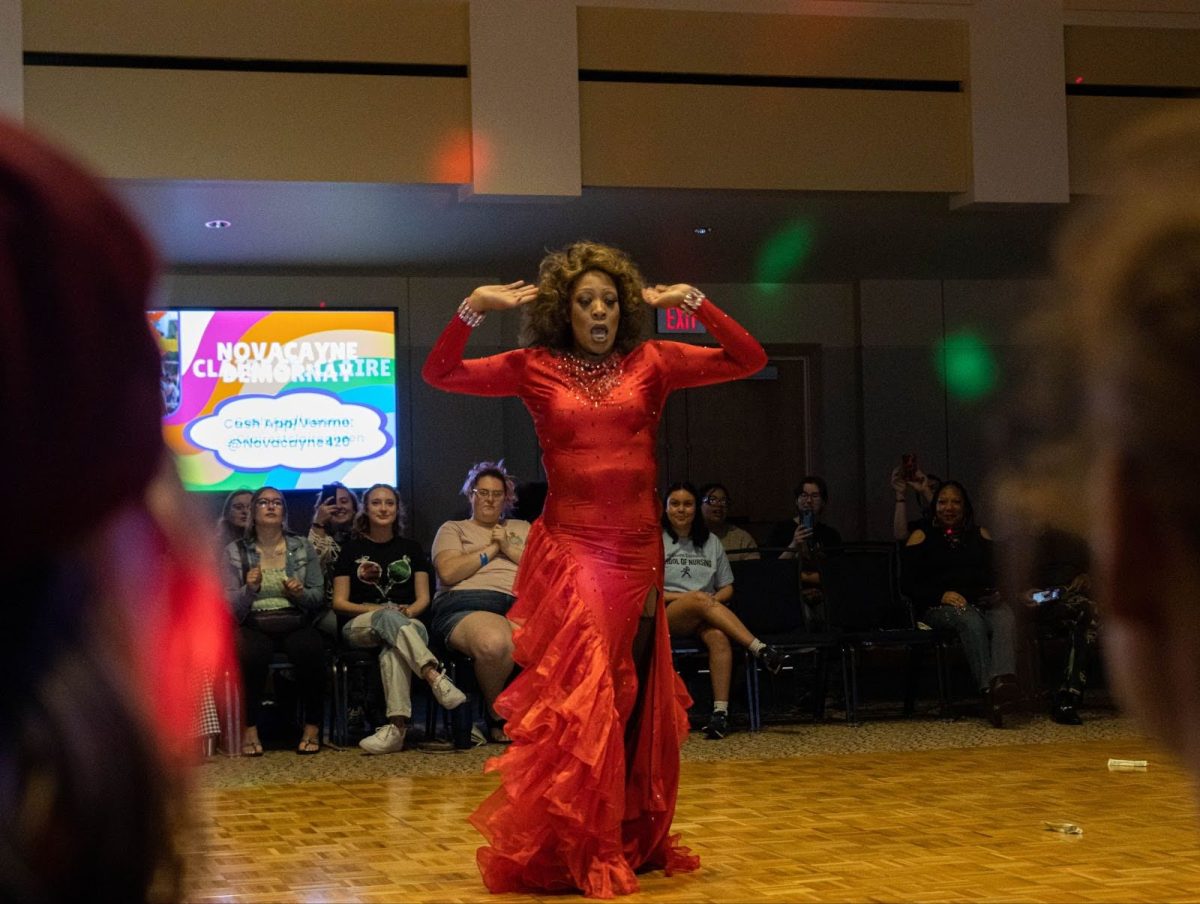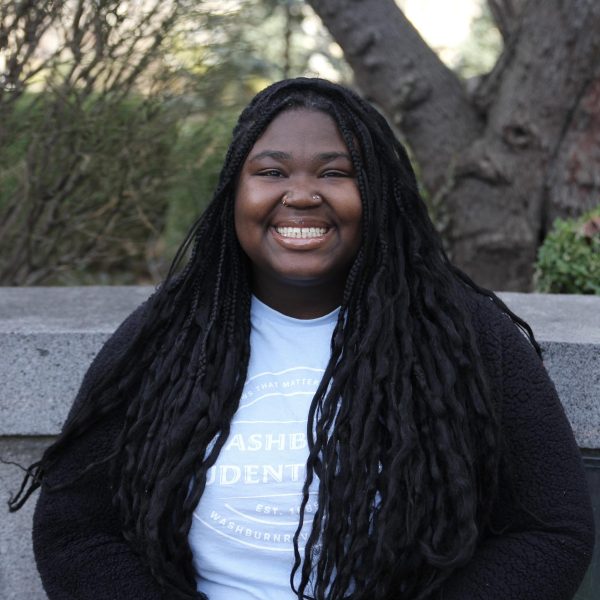Martin Luther King Jr. was a well known African American leader whose ideals closely relate to Washburn University’s own missions. King spoke about community, reconciliation and social justice as a visionary leader whose actions and words moved people to fight for their rights.
For the first time ever, Washburn University hosted a Martin Luther King Jr. celebration with hopes of hosting this lecture annually. According to Eric Grospitch, vice president of student life, this lecture is a call to action and an opportunity to engage in a meaningful conversation.
“This event is a testament to our students and to the values that we hold dear at Washburn: discourse, respect and the belief that education is a powerful force for positive change. It’s an opportunity for us to come together not only as a community to learn from each other, living our motto and action, ‘not for ourselves alone’,” Grospitch said.
At the celebration, Olivia Brice, assistant director student belonging, introduced the keynote speaker Amri Johnson, CEO and founder of Inclusive Wins.
“For more than 20 years, Amri Johnson has been instrumental in helping organizations and people create extraordinary business outcomes as the CEO and founder of Inclusive Wins. A virtual collective of partners converge organizational purpose to create global impact with the lens of inclusion,” Brice said.
As a Topeka native, Johnson spoke about growing up in an integrated community after desegregation. One of many theories he spoke about was Psychologist Gordan Howard’s research on contact theory. Prejudice can be reduced when groups of people intentionally come together regardless of their differences.
In order for contact theory to work, four conditions have to be followed: common goods, equal parts, intergroup cooperation and support from institutions and schools.
Intergroup contact theory is closely related to Brown v. Board of Education. The attorneys for the case used this theory to show data of how prejudice can cause harm to all children.
“They needed data beyond segregation, moral and spiritual evil. So, through this notion of intergroup contact theory, they discovered a body of research that showed definitive psychosocial harms of segregation. Segregation needs to be understood as parently damaging for all children, not just for black children, for all children,” Johnson said.
He then shared his own experience of intergroup contact theory from his senior year of high school. Johnson threw a party with well over 200 plus teenagers of different races from high school around Topeka, Kansas.
“I actually experimented with intergroup contact theory as a kid. I didn’t even know what it was theoretically, but I believe that Brown v. Board of Education […] allowed me to be a part of that and it actually planted the seeds for greater intergroup contact,” Johnson said.
Since desegregation started happening in Topeka during the 1950s, by the 1980s Johnson had the ability to form relationships with children of different backgrounds. Places like sports, school, parties and other activities that children indulged in opened doors for him to connect with people. Johnson would not have the opportunity to engage with people outside of his culture without the case or contact theory helping provide the data for the case.
Dennis Etzel Jr., senior lecturer for the English department, feels that being able to bridge gaps between students with different views and having inclusion in his classroom is important.
“The common denominator of love. It’s something that I think about all the time, especially as a professor, and I’m in a classroom of students from different backgrounds. It’s truly not just diversity and inclusion, right? […] The inclusion and belonging and that is something I’m concentrating on this semester,” Etzel said.
After talking about his experience as a child who went through an interesting period of time, Johnson speaks about grace. Audience members saw that as one of the most important topics he talked about. He related grace to King because he was forgiving to the people who tried to harm him and stop his protest with violent actions.
“King’s approach to nonviolent social change is based on undeserved, unmerited, unearned favor. When somebody beats me over the head, ‘You better have some grace in your heart’, I’ve heard King talk about this. He’s basically said we know that if we didn’t go nonviolently, it would be a bloodbath,” Johnson said.
Two friends of Johnson came to the celebration to hear what he had to say. Kevin Hill and Randy Davis are also Topeka natives who went to school with Johnson.
According to Hill, even though he and Johnson came from different backgrounds, they still have a great connection. As a person who came from a working class background and had Johnson as a friend, even though his family was more professional, their relationship did not ever end because of that. He recognizes Johnson is a man who gives grace.
Hill shares how important and nice it is to give grace even when you do not share the same ideals.
“Everyone deserves dignity, and it’s up to us in the beloved community to lead and not strip everybody down. What you might say I may not fly, but everybody has their own opinions and thoughts. You have to agree to disagree and sometimes that takes grace,” Hill said.
Davis, who has friends from many different cultures, believes it is important for people to hear what Johnson had to say.
“I had to go to college to learn about someone being racist, because I had multi diverse friends from Hispanic Latino to Asian to African American and it never made a difference to me and that’s how Amri’s family treated me and my family treated him and it doesn’t matter,” Davis said. “I would say I just think there’s a lot of people who need to hear this message out there and not just this community, I think all around.”
Johnson left two recommendations for people to read, “Jesus and Disinherited” by Howard Thurman and his own book, “Reconstructing Inclusion”.
Be on the lookout for more WUmester events that will relate back to the theme this spring semester.
Brice shares she is excited to be hosting another event for the first time, which is the Black History Month banquet on Feb. 8.
Edited by Jeremy Ford and Jayme Thompson




